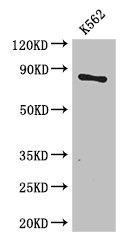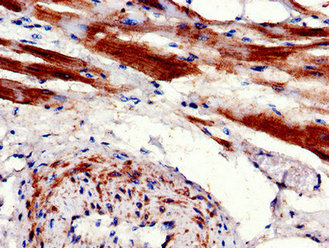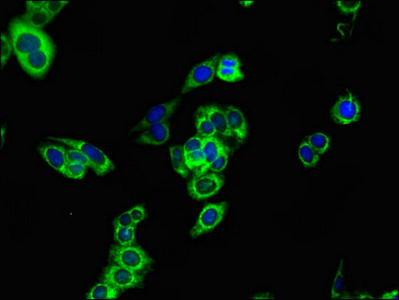Full Product Name
Rabbit anti-Homo sapiens (Human) CPT1B Polyclonal antibody
Alternative Names
CPT1B; KIAA1670; Carnitine O-palmitoyltransferase 1, muscle isoform; CPT1-M; Carnitine O-palmitoyltransferase I, muscle isoform; CPT I; CPTI-M; Carnitine palmitoyltransferase 1B; Carnitine palmitoyltransferase I-like protein
Immunogen
Recombinant Human Carnitine O-palmitoyltransferase 1, muscle isoform protein (165-318AA)
Immunogen Species
Homo sapiens (Human)
Conjugate
Non-conjugated
The CPT1B Antibody (Product code: CSB-PA821674LA01HU) is Non-conjugated. For CPT1B Antibody with conjugates, please check the following table.
Available Conjugates
| Conjugate |
Product Code |
Product Name |
Application |
| HRP |
CSB-PA821674LB01HU |
CPT1B Antibody, HRP conjugated |
ELISA |
| FITC |
CSB-PA821674LC01HU |
CPT1B Antibody, FITC conjugated |
|
| Biotin |
CSB-PA821674LD01HU |
CPT1B Antibody, Biotin conjugated |
ELISA |
Purification Method
>95%, Protein G purified
Concentration
It differs from different batches. Please contact us to confirm it.
Buffer
Preservative: 0.03% Proclin 300
Constituents: 50% Glycerol, 0.01M PBS, PH 7.4
Tested Applications
ELISA, WB, IHC, IF
Recommended Dilution
| Application |
Recommended Dilution |
| WB |
1:500-1:5000 |
| IHC |
1:20-1:200 |
| IF |
1:50-1:200 |
Storage
Upon receipt, store at -20°C or -80°C. Avoid repeated freeze.
Lead Time
Basically, we can dispatch the products out in 1-3 working days after receiving your orders. Delivery time maybe differs from different purchasing way or location, please kindly consult your local distributors for specific delivery time.
Usage
For Research Use Only. Not for use in diagnostic or therapeutic procedures.









